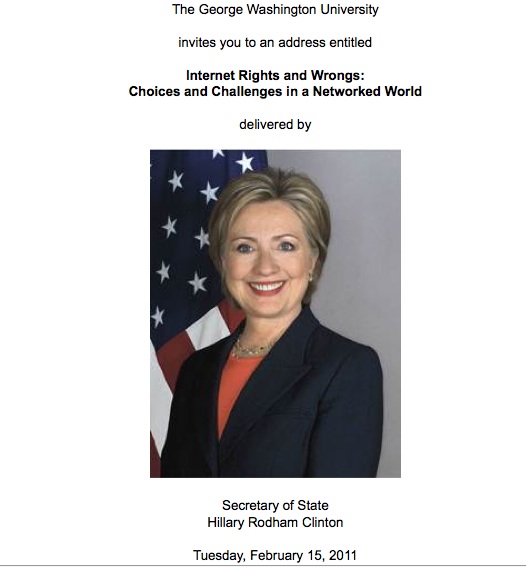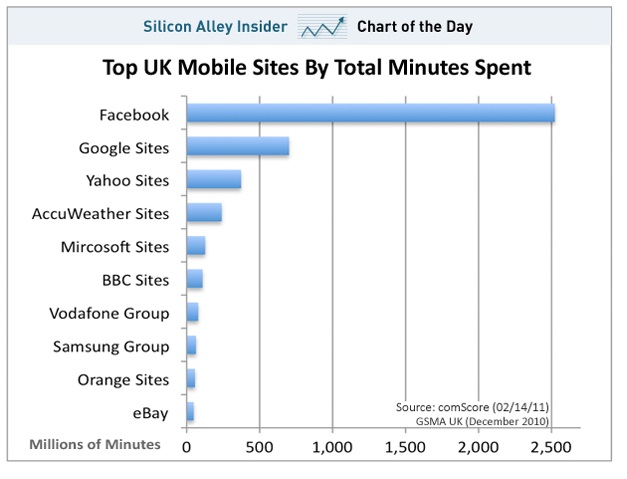Nicholas Kristof of the New York Times has been one of the best journalistic witnesses to what’s going on in the Middle East. His latest report from Bahrain includes an astonishing video sequence filmed in a hospital next to the bed of a plastic surgeon who had been beaten unconscious by security forces and then threatened with rape. His dispatch is worth reading in full. It begins:
A column of peaceful, unarmed pro-democracy protesters marched through the streets here in modern, cosmopolitan Bahrain on Friday. They threatened no one, but their 21st-century aspirations collided with a medieval ruler — and the authorities opened fire without warning.
Michael Slackman and Sean Patrick Farrell of The New York Times were recording video, and a helicopter began firing in their direction. It was another example of Bahrain targeting journalists, as King Hamad bin Isa al-Khalifa attempts to intimidate or keep out witnesses to his repression.
The main hospital here was already in chaos because a police attack nearby was sending protesters rushing inside for refuge, along with tear gas fumes. On top of that, casualties from the shootings suddenly began pouring in. A few patients were screaming or sobbing, but most were unconscious or shocked into silence that their government should shoot them.
Once again, it’s clear that the West, led by the US, has no idea how to react to what’s going on. In the case of Egypt, the problem (for the US) was its entanglement with Israel, and the fear that radical change in Cairo might undermine the peace treaty between Egypt and Israel which is one of the cornerstones of US policy on the Israeli-Palestinian conflict.
But at least Egypt has no oil. Bahrain does have some, but — according to the CIA Fact Book — is “facing declining oil reserves, … has turned to petroleum processing and refining and has transformed itself into an international banking center.” American pusillanimity this time has two sources: the fact that Bahrain is the base for the US Fifth Fleet; and it has the same governance arrangements as its powerful and oil-rich neighbour, Saudi Arabia, i.e. minority Sunni rule over an oppressed Shia majority. If the Bahraini regime were to fold, then the Shias in Saudi might get ideas, and who knows where that might lead? (Hint: think of a large, rich, Shia-dominated country with aspirations to develop nukes.)
So it’s overwhelmingly in the US’s interest to have the unrest in Bahrain resolved in some non-incendiary way. The affairs of this Mickey Mouse ‘kingdom’ with a population less than that of a London borough are thus giving major headaches to the boys in the Situation Room back at the White House.
In the long run, of course, there’s only one way out of this realpolitik dilemma: we have to wean ourselves off our dependence on Middle Eastern oil. But then, as Keynes wisely observed, in the long run we are all dead.
In the meantime, if this continues, oil will be $200 a barrel before you can say Hamad bin Isa al-Khalifa. (Yesterday in London, Brent crude for April delivery reached $102.76 a barrel on the ICE Futures exchange; Brent prices are supposedly a good indicator of what Mid-East prices will be.) Just as well that I’ve had my bike serviced.
And then there’s Libya…
UPDATE: Fascinating online petition entitled “The Bahrain Twitter Community Against Nick Kristof”, uploaded by hassan.albashhotmail.com on February 18, 2011, 4:11:11 pm. It reads:
Dear New York Times Editor:
The events that have fallen on Bahrain the past few days have been nothing short of tragic. So when the violence escalated, the world tuned in, through you, the media. This brings us to the point of this petition: we write to you today, complaining about the shoddy journalism of one of your own reporters, Nicholas D. Kristof. Through his twitter feed, he has accomplished nothing short of spreading the wrong message of the Bahraini situation, giving one-sided report, and spreading unchecked lies.
This issue was not about sectarian hate, the people did not want to overthrow the government. What the people were peacefully protesting for was reform, but Nick Kristof went on to compare the situation to Tunisia’s and Egypt’s. Not once did he mention the opposing point of view, not once did he see look at the situation objectively, and see that both sides were wrong.
Many of us during the past days have relied heavily on twitter to keep up with the latest updates on this grief that has struck our nation. I myself am studying in the United Kingdom, and it has been my main source of information. Which is why it was so disappointing to find Nick Kristof post unconfirmed information, such as the presence of Saudi military in Bahrain. For him to make this a Sunni and Shiite matter only fuels the hate.
We understand that the criterion for newsworthiness sometimes necessitates focusing on human interest, conflict, and shock value from an emotional angle. However, to continuously aim for such spin by intentionally ignoring other truths and exaggerating inaccuracies was extremely hurtful to our small national and its people, fueling a horrible fire and destroying alread strained relations.
We kindly ask that you review and independently investigate all that has been said when this situation is over, and take any appropriate actions you see fit in line with the journalistic standards befitting your esteemed organization.
MORE: The WikiLeaks trove of US Diplomatic cables contains some fascinating stuff about Bahrain as seen through American eyes. Particularly interesting is this report of the US Embassy’s attempts to assess the situation and views of young Bahrainis. It’s an good case study in competent, conscientious reporting. Sample:
2.(C) Over the course of two months, Embassy public affairs officers pulsed [sic] young Bahrainis about attitudes toward work, politics and their future. Conversations with more than fifty men and women between the ages of 17 and 30 offer useful insights into Bahrain’s next generation of young professionals.
——————————– UNEMPLOYMENT A WORRY FOR MANY… ——————————–
3.(C) Employment is a top concern for both Sunni and Shia youth, and especially men. A large majority tell us they worry about their job prospects and are not as confident in their future as they were five or ten years ago. Several contacts related stories of new graduates who are struggling to find jobs. Rashid Riaz, a liberal Sunni and Events Officer for a GOB-funded youth program, told us that over half of his close friends have been unemployed for a year or more.
4.(C) Others — particularly Shia — believe there are job opportunities in the country but that they are not equally available to all. According to Adnan Alawi, a young teacher and member of the (Shia) Wifaq party, “The good jobs go to certain people – Sunnis — and especially in the public sector.” Many Shia youth believe that employment discrimination is institutionalized in the public sector, but that in the private sector, skills and professional qualifications trump sectarian identity. Alawi claims that Shia youth are therefore more focused than Sunni on their own professional development in order to secure jobs in the “more competitive and fair” private sector.
5.(C) Although Sunni contacts acknowledged the widespread perception that not all Bahrainis are treated equally, they accused the Shia of exaggerating alleged discrimination in order to pressure the GOB into providing them more jobs and benefits. Ahmed Al Harban, a conservative Sunni, asserted that poor Sunnis are not as politically well organized as Shia and therefore generally receive less public assistance.
And:
————- …BUT SECTARIAN DISCRIMINATION MAY NOT BE THE ONLY CAUSE ———————
6.(C) Several Sunni and Shia contacts cited the poor work ethic of Bahraini youth, rather than sectarian discrimination, as a factor in unemployment. They asserted that many are “unemployed by choice.” There are numerous jobs available, they explained, but young Bahrainis are unwilling to take positions that are lower-paying, require long working hours or are seen as low status. Noor Nass, an undergraduate student at the Royal University for Women and from a prominent Shia family, said that she has declined two job offers because of low wages. Other contacts tell us that most young people prefer government employment or positions with established companies and refuse jobs with salaries lower than BD 500/month (USD 1400/mo.) In another example, post worked with a local contractor to provide paid summer internship opportunities with the French multinational supermarket “Geant” for several poor Shia high school students who had graduated from the USG-sponsored ACCESS English program. According to the contractor, the students didn’t even show up for the initial interview because they deemed the wages to be too low and the jobs were not “in management.”
7.(C) Mansoora Al-Jamri, a journalist from a prominent Shia family, said that young Bahrainis underestimate their potential and can only envision themselves in a government clerical job. Many “are afraid to think big.” Some of her contemporaries have ambitious professional goals, she said, but they are a minority.



